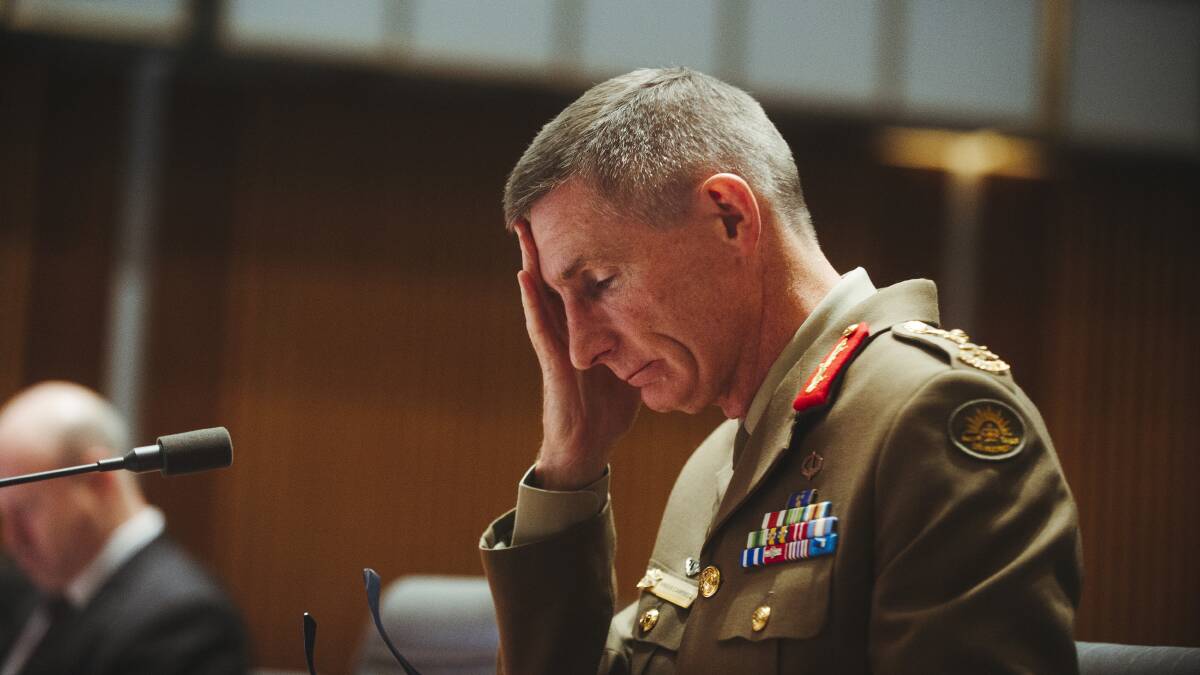
The Defence Department has quietly released its four-year plan to address the "serious and disturbing" allegations of war crimes committed in Afghanistan as outlined in last year's Brereton report release.
The Chief of the Defence Force General Angus Campbell and Defence Department secretary Greg Moriarty together conceded there had been "serious and systemic organisational and cultural failings" within the organisation, a reform plan released on Friday afternoon revealed.
It comes nearly nine months after the public release of Justice Brereton's report into allegations Australian special forces personnel committed a number of war crimes in Afghanistan over an 11-year period.
The report said there was credible evidence that 25 special forces personnel were involved in the unlawful killing of 39 individuals, mostly prisoners, farmers and civilians.
It also found evidence of a toxic culture within the sub-unit that encouraged new recruits to kill prisoners in order to achieve their first kill - a practice called "blooding".
The plan to address the alleged wrongdoings by Defence, which is set to begin at the end of this year, will be split into five streams - organisational arrangements and command accountability, culture, workforce, information, and partnerships.
It would look to fix the root causes, which led to the atrocities, and not just address the symptoms, they said.
"These failings created an environment which allowed Defence's proud and respected reputation, earned by our professional and ethical personnel over decades, to be damaged by the actions of a few," the joint foreword said.
"We accept responsibility for these failings in systems, culture and accountability and are committed both to addressing the failures and wrongdoing of the past and undertaking deep and enduring reform across the organisation."
It added where there was sufficient evidence of wrongdoing, criminal, disciplinary, administrative; and other workforce management actions, including the stripping of honours and awards, could be undertaken against individuals.
Four stages will be used to achieve the reform objectives with the first three focusing on the allegations of and the final stage aiming to prevent it from happening again.
Stage one will address specific allegations of wrongdoings against individuals, responding to the Brereton report's recommendations, while the second stage will determine whether additional action needs to be taken against the findings.
Defence said it is "well advanced" in addressing the first stage's steps and is expected to complete 90 per cent of those responsibilities by the end of the year.
READ MORE:
Following the public release of the report late last year, General Campbell moved to strip special forces troops of their citations following its recommendations.
Defence Minister Peter Dutton later formally overturned the decision this year ahead of Anzac Day on April 25.
"This says to people very clearly before Anzac Day that we want to reset, that we want to provide support to those people who have served our country, and who have died in that service," he said.
Defence's plan indicates it will uphold the decision made by Mr Dutton this year.
The Office of Special Investigations was established late last year by Mr Dutton, then-home affairs minister, to begin its task of investigating the alleged war crimes committed by the Australian Defence Force.
The office's director-general, and former department secretary, Chris Moraitis told Senate estimates in March this year it was still in the process of hiring the appropriate team to handle the task.
Mr Moraitis outlined it had already seconded staff from the Home Affairs and Attorney-General's Department along with federal police but would look to engage investigation specialists from state and territory police to add to the current team of 19.
Up to 75 investigators are expected to join the team once recruiting begins but Mr Moraitis conceded finding people with war crime investigation experience had proved difficult.
"No one's had much experience of doing war crimes investigations," Mr Moraitis said.
"I've chosen individuals who have good policy skills, have experienced things like, for example, criminal law, worked in criminal legal policy, various task forces.
"Our view is that the Australian criminal system is more than robust to deal with this."
Our journalists work hard to provide local, up-to-date news to the community. This is how you can continue to access our trusted content:
- Bookmark canberratimes.com.au
- Download our app
- Make sure you are signed up for our breaking and regular headlines newsletters
- Follow us on Twitter
- Follow us on Instagram


